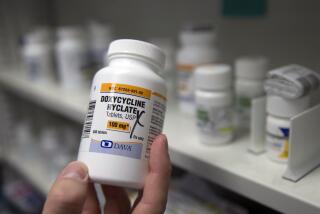The Not-So-Hidden Epidemic : Americans must face the reality of sexually transmitted diseases
- Share via
A new study on sexually transmitted diseases forces Americans to confront the harsh truth about a growing epidemic whose implications too many of us prefer not to recognize. The United States now leads all other developed nations in the rate of diseases passed through sexual contact. Each year, 12 million new cases are reported. Teenagers account for one-fourth of them. Each year, the treatment of chlamydia, AIDS, syphilis, gonorrhea, herpes and hepatitis B costs the nation at least $17 billion. More than one in five Americans, says the Institute of Medicine, an arm of the National Academy of Sciences, may already be infected with a sexually transmitted disease. About two-thirds of them became infected before the age of 25.
The study by the institute emphasizes that several sexually transmitted diseases--not just AIDS--can be killers. Hepatitis B destroys the liver. The sexually transmitted human papilloma virus increases tenfold a woman’s chance of developing cervical cancer. Left untreated, these diseases can also lead to infertility, birth defects and miscarriages. The study underscores that every sexually transmitted disease is preventable. Yet the United States spends only $1 to try to prevent these diseases for every $43 it spends to treat them.
The consequences of disregarding prevention are clear. Americans may not be uniquely sexually active, but in many instances they seem to be notably more ignorant or careless than others in their sexual behavior. In Canada, gonorrhea strikes 18 in 100,000 people; the corresponding figures are three in Sweden and a staggering 150 in the United States.
The time has long since come to recognize sexually transmitted diseases as a public health problem affecting everyone. Dr. William T. Butler of the Baylor College of Medicine, who chaired the Institute of Medicine study committee, said, “We need to fight this hidden epidemic by bringing together entire communities to promote healthy sexual behavior, protect adolescents, provide high-quality clinical services and energize strong leadership in the fight.”
Zealous local opposition to sex education in the schools or to the distribution of condoms represents a doomed effort to pretend no problem exists. Of course adolescents should be strongly encouraged to delay sexual intercourse. They should also be made fully aware of the consequences of unprotected intercourse. One glance at the appalling numbers should make that clear to everyone.





